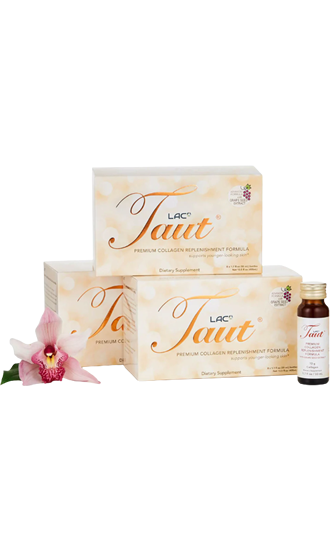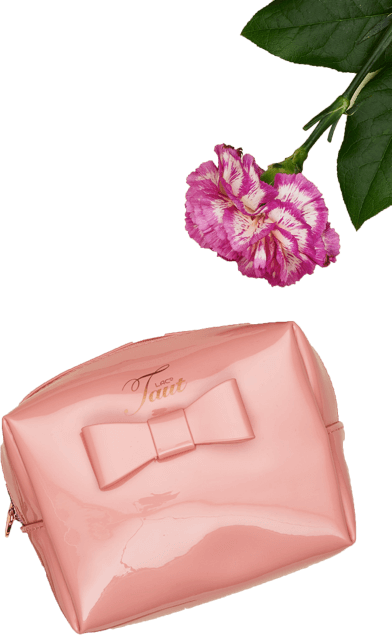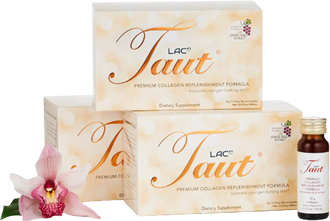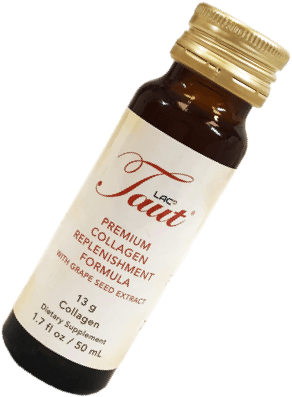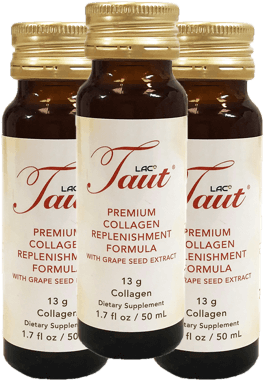Can You Use Hyaluronic Acid With Retinol: Before, After, or Together?

It's hard to know what works with retinol, and what doesn't. We all love its amazing anti-aging benefits, but it comes with the price of being a harsh and irritating ingredient with a serious adjustment period. It also reacts badly to certain ingredients. So if you use it with the wrong products, you could face serious dryness and irritation. Or, it may not work at all, and your expensive retinol cream will just be wasted away.
So can you use hyaluronic acid and retinol together? Yes! Unlike many other ingredient pairings, hyaluronic acid and retinol are a perfectly safe combination. Hyaluronic acid is a famously hydrating and gentle ingredient found in many of the best skin care products on the market. When you use hyaluronic acid and retinol together, they can complement each other's benefits and you can reap the maximum rewards for your skin.
However, there is an art to using these skincare ingredients together, which we're about to show you! Combine them incorrectly, and your skin won't feel the benefits. So here's everything you need to know about combining hyaluronic acid and retinol.
Benefits of Using Hyaluronic Acid With Retinol
Using hyaluronic acid and retinol in the same skincare routine is a very good idea if you want to combat the signs of aging and achieve a soft, dewy glow.
Retinol boosts skin cell turnover, combats oxidative stress, regulates sebum production, and increases collagen production. The benefits of retinol include improving skin texture, fading dark spots, reducing acne, and combatting skin aging. The downside is that it can be a harsh and drying ingredient, and side effects may include peeling, redness, and irritation.
Hyaluronic acid, on the other hand, can draw water into the skin like a sponge. This can reduce dry skin and soothe irritation, and it has a natural plumping effect. When you use hyaluronic acid with retinol, there is a synergistic effect.
Hyaluronic acid helps keep the negative side effects of retinol to a minimum. Hyaluronic acid improves your skin's ability to tolerate irritation, so it will minimize any retinol-induced sensitivity. As one of the most hydrating skincare ingredients out there, hyaluronic acid will also combat the drying effects of retinol and lock moisture into the skin. Even better, it's suitable for all skin types!
Before or After? How to Use Hyaluronic Acid and Retinol Together
The trick is to use hyaluronic acid either with or after retinol — not before. For best results, combine them in your evening skin care routine. Before bed is recommended because retinol can increase your skin's sensitivity to the sun, and your skin can also repair itself from any harsh effects while you sleep. Here's how to use hyaluronic acid with retinol:
Step 1: Cleanse
To start, wash your face with warm water and a gentle cleanser to remove any makeup, oils, and dead skin that may have built up during the day. It's important to make sure your skin is properly cleansed so that it's primed and ready to absorb the active ingredients you're about to apply.
What's the best face cleanser? RenewSkin Inc. ranks the top face washes on the market.
Step 2: Pat Skin Fully Dry
Remember not to scrub your face dry after cleansing, as this can increase irritation and sensitivity in the skin. Instead, gently pat your skin dry with a clean towel or face cloth. Make sure there's no residual moisture left on your skin, as this can increase the strength of your retinol in a negative way, increasing the potential for uncomfortable side effects.
Step 3: Apply Retinol
Once your skin is fully dry, it's ready for your retinol serum or cream. Gently massage a few drops of the product onto your face and neck, making sure it's fully absorbed before moving on to the next step. It should take a couple of minutes for the product to fully sink into your skin.
Step 4: Apply Hyaluronic Acid Serum or Moisturizer
Finish up your evening skin care routine with hyaluronic acid. As one of the best moisturizing ingredients, hyaluronic acid is the perfect way to follow up after retinol, locking in moisture and soothing irritation. If you've gone for a lightweight hyaluronic acid serum, you might want to add a moisturizer/night cream as a final step to combat dryness.
If you really want to keep your skin hydrated and plump, you should also consider trying hyaluronic acid pills like Taut Hydrate. Don't get us wrong, when applied topically, hyaluronic acid is still an effective and powerful ingredient. But when you consume it in supplement form, too, it can replenish your skin's hydration from a deep dermal level.
What If My Retinol Cream Already Contains Hyaluronic Acid?
If you check the ingredients label on your retinol cream, you may find hyaluronic acid is listed there already. In fact, it's very common that skincare manufacturers will pair retinol (or other topical retinoids like retinoic acid) with calming ingredients like hyaluronic acid or aloe vera.
If your retinol cream already contains hyaluronic acid, there's no harm in using a separate hyaluronic acid product as well. The main thing is not to apply it in excess, as too much hyaluronic acid can actually make your skin more thirsty, and eventually, it can become drier. It's fine in two products (e.g. a retinol cream containing hyaluronic acid plus a separate hyaluronic acid moisturizer or supplement), but try to avoid using it at every step of your skin care routine. 1
Other Ingredients That Work Well With Retinol
Here are some other options that you can add to your skincare regimen to boost the positive effects of retinol:
Collagen Peptides
The secret to anti-aging skincare is collagen. Almost all of the most celebrated anti-aging skincare products and aesthetic treatments, the main goal is to increase collagen production. Collagen is the fibrous protein that supports your skin, keeping it firm and smooth.
Collagen peptides are derivatives of collagen, and you'll find them in serums, night creams, and supplements. When your body absorbs these peptides, they signal to your skin cells that you need more collagen, and your natural production of collagen speeds up. This collagen boost can reduce the appearance of wrinkles and firm up sagging skin.
Retinol and collagen peptides are safe to use in the same skincare regimen, and they maximize each other's benefits. Collagen peptides add more collagen into your body, and retinol makes sure it's used effectively to lift and firm your skin. To combine the two, apply retinol before using a collagen peptide cream or mask.
For best results, we recommend a good quality collagen supplement like Taut Liquid Collagen Drink. By ingesting collagen peptides in a supplement, you're able to deliver a more active and potent dose of the ingredients straight into your bloodstream, where they will be much more effective. Even better, a high-quality supplement like this will also deliver other key active ingredients to your dermis, including elastin, hyaluronic acid, grape seed extract ceramide, and vitamins B and C.
Ceramides
Ceramides are types of fats that make up the majority of your natural skin barrier. This is the layer that helps retain moisture in your skin and keep germs and toxins out. A healthy skin barrier is the key to supple, hydrated skin.
You can mix ceramides in skin care products into the same routine as your retinol, ideally applying the ceramides last. Since retinol is a derivative of vitamin A — which is a fat-soluble vitamin — ceramides can help improve its absorption in your skin.
Niacinamide
Niacinamide, a form of vitamin B3, is an important nutrient that can help regulate oil production, tighten pores, brighten your complexion, and improve your skin tone. It's especially great for oily and acne-prone skin types, as it can help reduce blemishes like pimples, blackheads, and redness.
It's also a hydrating ingredient that can soothe inflamed skin, so it makes a great antidote to retinol's negative effects! You may find niacinamide mixed with retinol in one serum; or, if using separately, apply niacinamide before retinol.
What Shouldn't Be Mixed with Retinol?
The trick to combining hyaluronic acid and retinol in one skincare routine is to avoid adding any conflicting ingredients into the mix. It's great to get your retinol and hyaluronic acid in the right order, but it won't mean much unless you keep the following conflicting ingredients out of that same evening skin routine:
Vitamin C
Vitamin C is a superstar ingredient for skin care lovers, thanks to its incredible antioxidant and collagen-boosting capabilities. It's a powerful ingredient that's really worth investing in and adding to your skin care regimen, especially if you want brighter skin with fewer fine lines and wrinkles.
However, it's not a good idea to mix vitamin C skincare and retinol in one routine. When used together, it's common that skin reacts badly and becomes dry and irritated. Vitamin C can also reduce the effectiveness of retinol if used at the same time — essentially canceling out any benefits you might otherwise get. Instead, get the most out of both ingredients by separating them: use your vitamin C serum in the morning, and leave retinol to the evening.
Exfoliating Acids
Exfoliating acids are another excellent set of ingredients to have in your skin care arsenal, as they help remove dead skin, brighten your complexion, combat blemishes, and fight fine lines and wrinkles. Exfoliating acids include AHAs (alpha-hydroxy acids) like glycolic acid and lactic acid; and BHAs (beta-hydroxy acids) like salicylic acid.
Unfortunately, using both retinol and exfoliating acids at the same time can leave you with red, irritated, and sensitive skin. These acids will likely exaggerate any peeling or burning you might experience from retinol, so it's best to keep them apart. You could alternate the evenings in which you use them, or keep your exfoliation to the morning and retinol to the evening.
Benzoyl Peroxide
Retinoids and benzoyl peroxide are both potent ingredients used for treating acne, but they shouldn't be combined in one routine. Benzoyl peroxide is an antibacterial agent that combats acne, treats rosacea, regulates oil production, and staves off blemishes.
Combining your retinol use with benzoyl peroxide in the same routine, however, is not going to be effective. Not only will they cancel each other out and you'll miss out on the benefits of either, you may also experience severe skin irritation and dryness, too.
If you have severe acne and are considering adding benzoyl peroxide and retinoids to your routine, it's best to seek professional medical advice from a board-certified dermatologist.
The Bottom Line: Hyaluronic Acid and Retinol Are a Perfect Match
So, can you use hyaluronic acid and retinol together? Absolutely! In fact, it's actively encouraged if you want to achieve smoother, softer, younger-looking skin. Hyaluronic acid can help soothe and calm any irritation that may otherwise be caused by retinol, while also boosting the anti-aging benefits by reducing dryness and plumping up your skin.
To get even more benefits, try adding in some collagen peptides, ceramides, or niacinamide. As long as you keep vitamin C, exfoliating acids, and benzoyl peroxide separate, you'll be on your way to healthy skin in no time.
The Perfect Trio: Hyaluronic Acid and Retinol Are Better With Collagen
Retinol and hyaluronic acid are a winning combination that can really improve the texture of your skin. For more drastic results, the very best ingredient to pair with this combination is collagen.
While we can't turn back the hands of time, this winning ingredient combo is the next best thing. Collagen firms and tones your skin, while hyaluronic acid hydrates. Add in your retinol to boost cell turnover and improve skin texture, and you've got the perfect recipe for youthful, radiant skin.
If you really want to kickstart your skin's journey to better health, try our Ultimate Transformation Program. It contains a three-week supply of our most powerful skin care products:
-
Taut Liquid Collagen Drink (24 bottles) — a skin-loving supplement packed with 13,000 mg marine collagen peptides, elastin peptides, hyaluronic acid, grape seed extract, ceramide, and vitamins B and C.
-
Taut Hydrate (60 capsules) — our potent hyaluronic acid supplements with the antioxidant powers of grape seed extract.
-
Taut Collagen Mask (5 masks) — a luxurious sheet mask infused with collagen peptides, hyaluronic acid, and vitamin C.
This beauty bundle has been expertly designed to dramatically transform aging skin, offering a visible reduction in wrinkles, sagging, and dry skin. The results? Firmer, fuller, younger-looking, glowing skin!
Subscribe to our auto-ship program for up to 15% off your transformation program!
References:
More helpful reading: https://theskincareenthusiast.com/retinol-vs-hyaluronic-acid/

